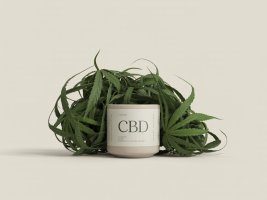
CBD
Cannabidiol, or CBD, is a natural compound found primarily in the flowers and leaves of the hemp plant, a variety of cannabis used historically for thousands of years. It works by interacting with your body's complex cell-signaling network known as the endocannabinoid system and is most known for potentially easing anxiety and improving sleep without the "high" associated with THC. While some studies, particularly using specific formulations like nanodispersible CBD, show significant improvements in mild to moderate anxiety, overall research presents mixed results, with systematic reviews often finding insufficient evidence for widespread mental health benefits, highlighting the need for more high-quality trials.
Table of Contents
Categories & Effectiveness
Mood & Stress
Anxiety Relief
7/10Strong evidence of effectiveness
Emotional Stability
4/10Moderate evidence of effectiveness
Mood Elevation
4/10Moderate evidence of effectiveness
Wellbeing Boost
4/10Moderate evidence of effectiveness
Physical Performance
Appetite Regulation
4/10Moderate evidence of effectiveness
Sleep Quality
Deeper Sleep Quality
4/10Moderate evidence of effectiveness
Dosage & Side Effects
Recommended Dosage
Potential Side Effects
Interactions & Stacks
Benefits by Use Case
Mild Anxiety Relief
May help reduce symptoms of mild to moderate anxiety, as shown in some clinical trials using specific formulations. Evidence for broader anxiety disorders or severe cases is less consistent.
Sleep Quality Support
Can potentially improve sleep quality, often reported as a secondary benefit in anxiety studies. Effects may vary depending on the cause of sleep disturbance.
Appetite Support
Medicinal cannabis products (including those with CBD) have shown potential to improve appetite in some studies, particularly in cancer patients. This effect may be linked more strongly to THC or whole-plant extracts.
Cognitive Support
Considered an emerging strategy for addressing cognitive impairments, though research is still developing. High-quality evidence confirming significant cognitive benefits is currently limited.




